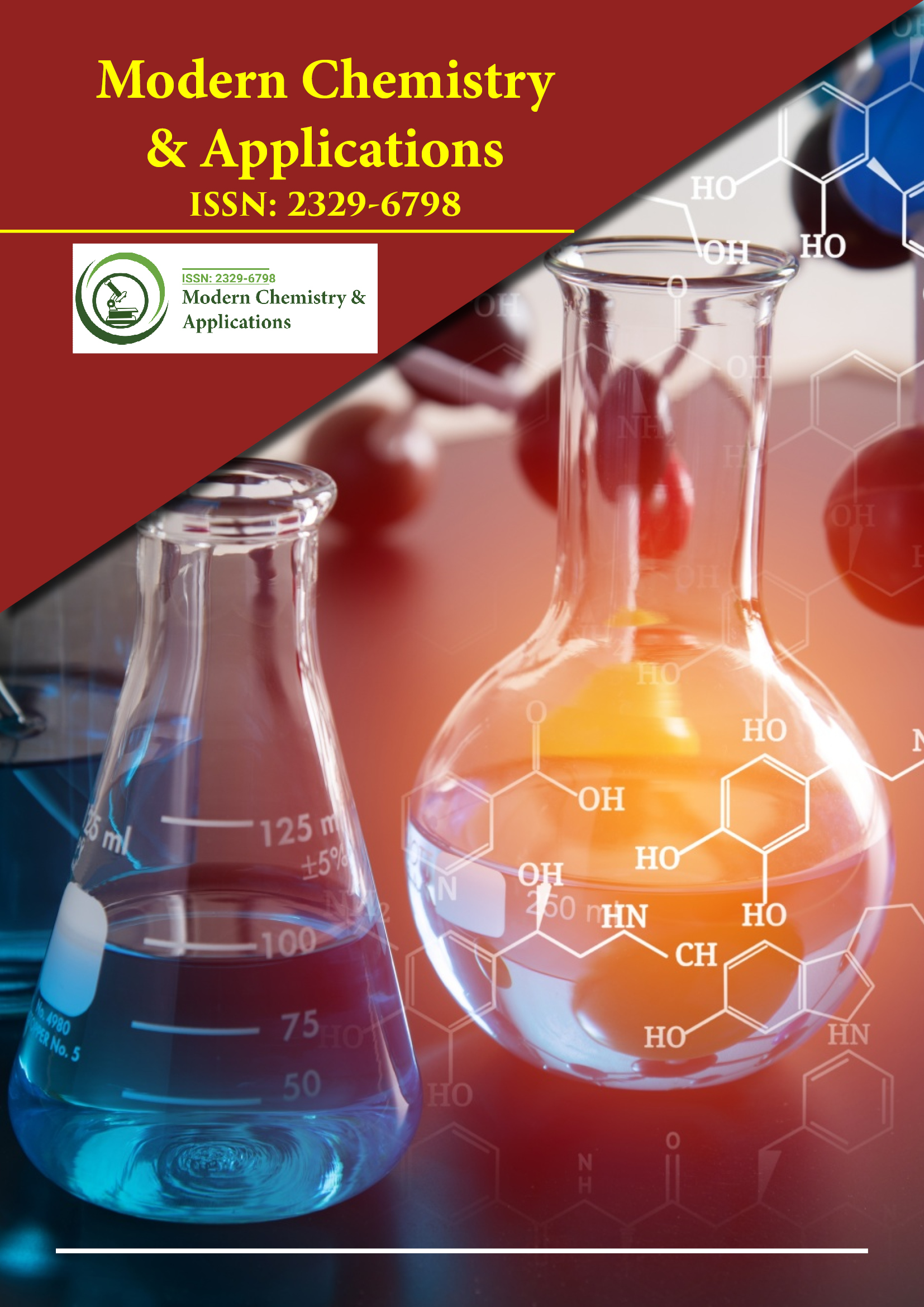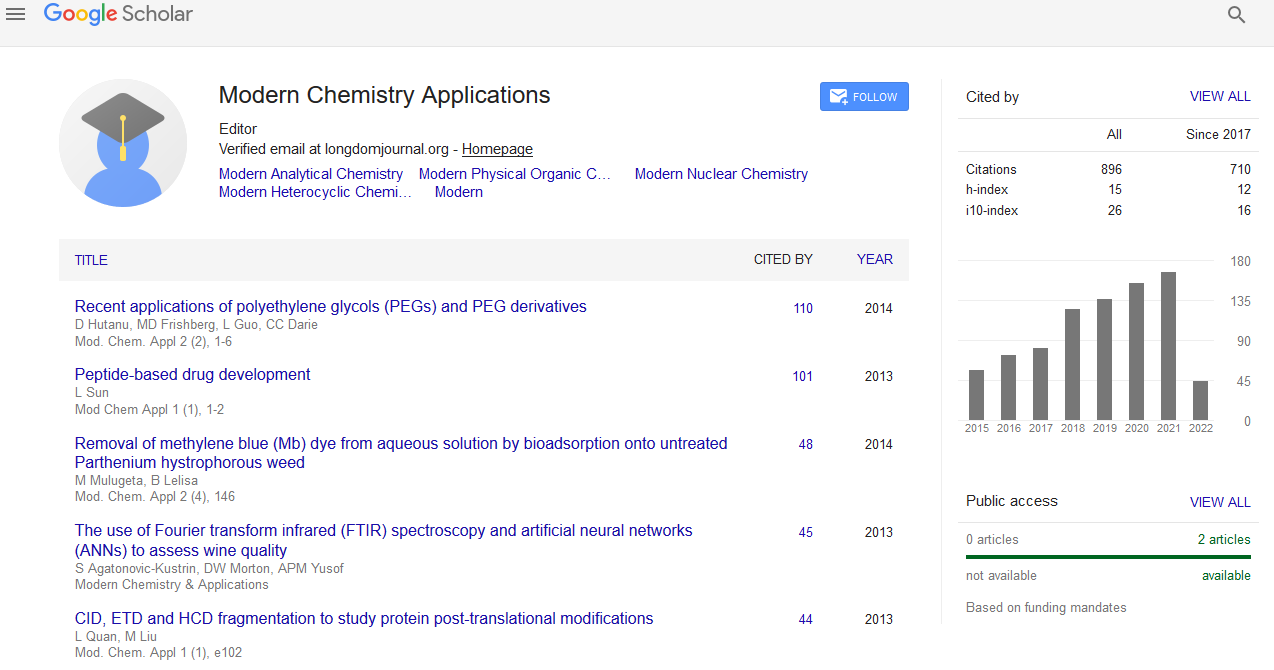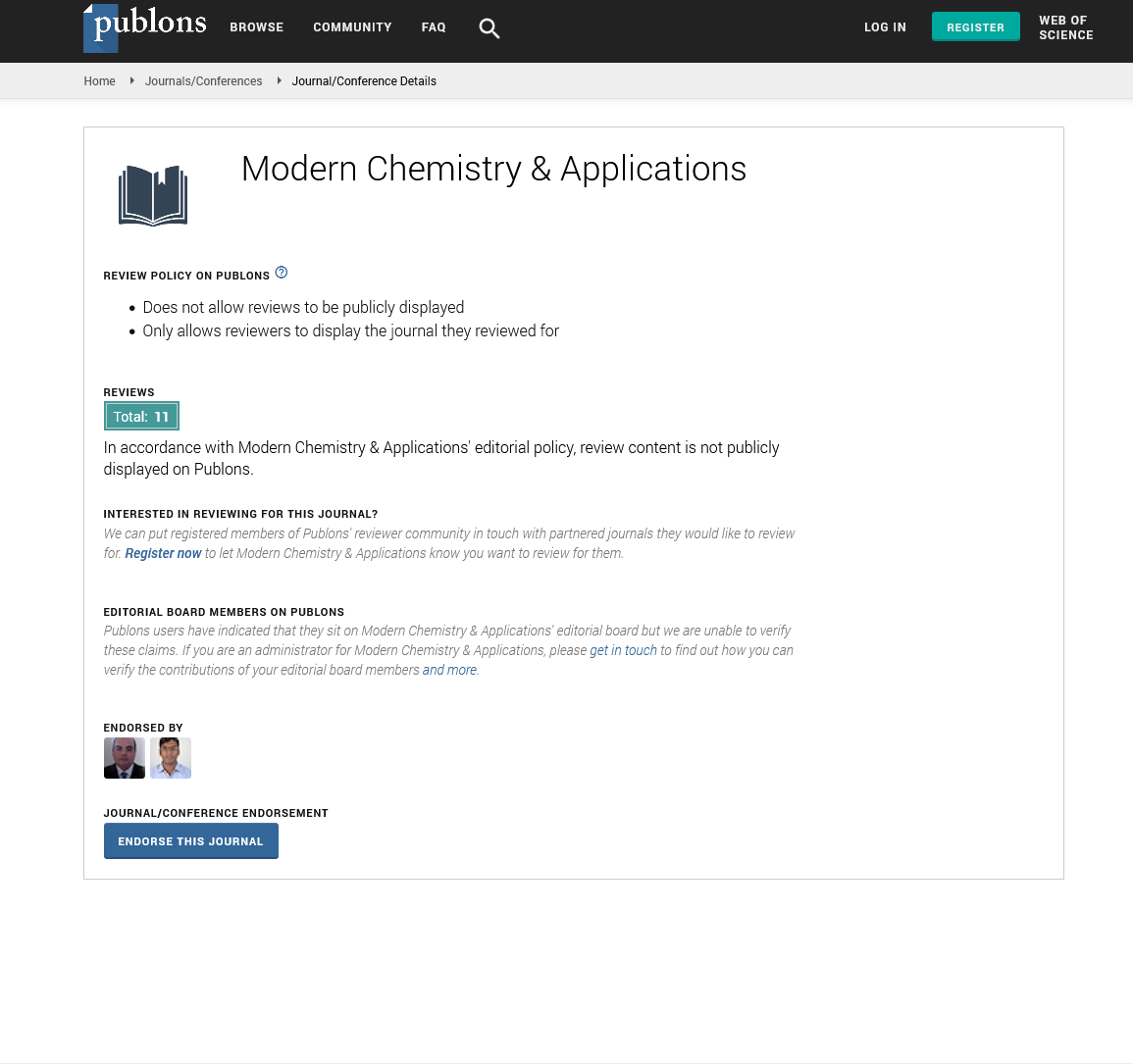Indexed In
- Open J Gate
- JournalTOCs
- RefSeek
- Hamdard University
- EBSCO A-Z
- OCLC- WorldCat
- Scholarsteer
- Publons
- Geneva Foundation for Medical Education and Research
- Google Scholar
Useful Links
Share This Page
Journal Flyer

Open Access Journals
- Agri and Aquaculture
- Biochemistry
- Bioinformatics & Systems Biology
- Business & Management
- Chemistry
- Clinical Sciences
- Engineering
- Food & Nutrition
- General Science
- Genetics & Molecular Biology
- Immunology & Microbiology
- Medical Sciences
- Neuroscience & Psychology
- Nursing & Health Care
- Pharmaceutical Sciences
Flow chemistry- flow analysis vs flow synthesis: Similarities and current trends
9th Global Chemistry Congress
July 23-24, 2018 | Lisbon, Portugal
Marek Trojanowicz
University of Warsaw, Poland
Keynote: Mod Chem Appl
Abstract:
During last two decades, flow chemistry has been a very intensively developing field of modern methods of chemical synthesis on a laboratory scale. What is particularly interesting, the development on numerous techniques and methods in flow chemistry, has practically never been referred to the laboratory flow analysis methods developed since the 1950s. The efficient and reproducible treatment of samples or chemical transformation of analytes is among commonly recognized attributes of flow analysis. At the same time, this is the fundamental element of synthetic methods in flow chemistry. On the other hand, the monitoring of progress and yield of syntheses under continuous flow conditions, carried out in a discrete mode after a given process in collected fractions, has been increasingly replaced by continuous monitoring with on-line instruments incorporated into flow setups. This is exactly what is considered as a typical application of flow analysis. Other methods in flow analysis, as well as laboratory flow synthesis are being developed in numerous leading research centers on a world scale; hence it is bewildering to find that practical research activity in each of these fields does not involve referring one to another. The flow mode of conducting chemical syntheses facilitates chemical processes through the use of on-line analytical monitoring of occurring reactions, the application of solid-supported reagents to minimize downstream processing and computerized control systems to perform multi-step sequences. They are exactly the same attributes as those of flow analysis, which has solid place in modern analytical chemistry in several last decades.
Biography :
Marek Trojanowicz is a Professor of Chemistry in the Institute of Nuclear Chemistry and Technology in Warsaw, Poland, and a Professor Emeritus of the Department of Chemistry, University of Warsaw. His expertise includes flow analysis, liquid chromatography and capillary electrophoresis, design of electrochemical sensors and biosensors, application of ionizing radiation for water and waste treatment and application of chemical analysis in archaeometry. He was granted Visiting Professor position in numerous universities all over the world including long-term appointments in University of Michigan, University of California at Riverside, University of Tasmania, Australia, Okayama University, Japan, and University of Sao Paulo, Brazil. He is the author of 350 scientific papers, two monographic books and editor of two books in the field of flow analysis and automation of analytical measurements. He is a Member of Advisory Boards of 10 international analytical journals. His current number of citations according to ISI Web of Knowledge is almost 6000, with Hirsch index 40.
E-mail: trojan@chem.uw.edu.pl


